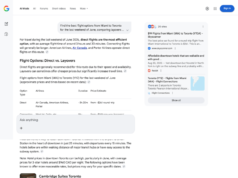NEWS ANALYSIS: With the possibility that fake news may have impacted the U.S. presidential election, people are giving a new look to a relatively old type of operation—propaganda and misinformation.
Three days before the 2016 presidential election, Facebook users began sharing an anti-Hillary Clinton article. The headline, in all caps, declared “FBI AGENT SUSPECTED IN HILLARY EMAIL LEAKS FOUND DEAD IN APPARENT MURDER-SUICIDE.”
The article was a fake, naming a fictional police chief and published on an incomplete site called the “Denver Guardian,” a site whose domain had been registered only the year before, on July 17, 2015. The Denver Post did a tear down of the article, listing all the warning signs that should have tipped off readers that the story was false. Instead, credulous—or partisan—readers shared the article at least 568,000 times and rocketing it to more than 15.5 million impressions, according to the Huffington Post.
While there is no evidence that fake news influenced the U.S. presidential election, information-security experts point to the increase in false stories before the election as an example of the increasing difficulty in delivering accurate information to the right people at the right time.
“I think it definitely is a data-integrity challenge,” Christopher Paul, senior social scientist at the Rand Corp. told eWEEK. “What the extent of it is? It is hard to know. There [are] different audiences, who are differently vulnerable.”
The outcry over fake news has given new focus to a relatively old type of operation—propaganda and misinformation. A variety of actors have used misinformation as a way to influence the decisions of targeted people, and propaganda – which originally had the positive meaning of propagating the truth – was first used in the 17th century by the Catholic church. Unlike past propaganda and misinformation campaigns, modern efforts benefit from the internet’s efficiencies and because widely diverse online opinions have led to a chaotic information landscape blurring the factual and make-believe.
Social-media has become an echo chamber that has amplified the phenomenon. Facebook and other social media sites have borne the brunt on recent criticism, as such sites are the filter through which many U.S. citizens view of the outside world. Sixty-two percent of Americans get at least some of their news from social media, according to a Pew Research Center study. About 70 percent of Reddit users, for example, get some of their news from the site, while 66 percent of Facebook users get news from its service.
During the election, fake news stories surged in popularity. The top-20 fake news stories jumped to 8.7 million Facebook engagements—a measure including the total number of shares, reactions and comments—between the beginning of August and Election Day, winning the popularity contest with mainstream news, which only saw 7.7 million Facebook engagements, according to an investigation by Buzzfeed. Seventeen of the top-20 fake news stories were pro-Donald Trump, the publication said.
Did these stories affect people’s perceptions enough to change the outcome of the election? It’s plausible, according to Fillippo Menczer, a professor of computer science and informatics at Indiana University in Bloomington.
“Each piece of misinformation contributes to the shaping of our opinions,” he wrote in an editorial in The Conversation. “Overall, the harm can be very real. If people can be conned into jeopardizing our children’s lives, as they do when they opt out of immunizations, why not our democracy?”
Initially, Facebook CEO Mark Zuckerberg downplayed the impact that such stories could have on the election cycle, but then acknowledged the problem of disinformation and information pollution on Facebook. “The bottom line is: we take misinformation seriously,” he said on his regular blog.
Yet, election shenanigans are just the most public face of misinformation campaigns. Governments regularly use propaganda to convince the populace of views that support the nation-state’s interests. And misinformation campaigns could become a more popular way of conducting deniable attacks on rival nations.
On Sept. 11, 2014, for example, residents in Louisiana reportedly began seeing a variety of reports concerning a toxic cloud coming from a chemical plant in Centerville.






